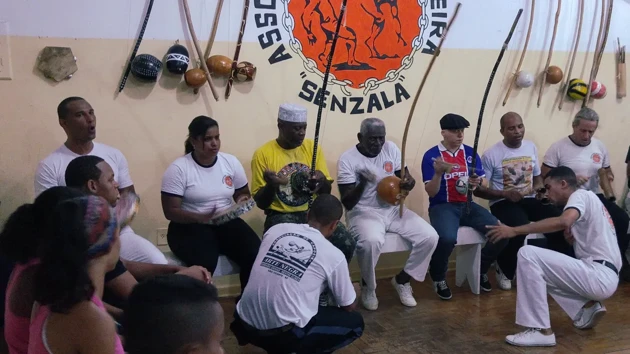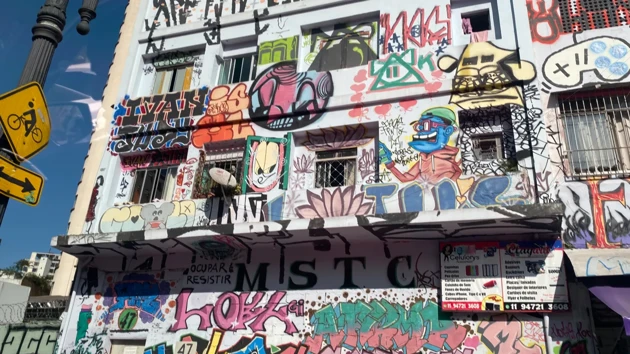Practitioners of Capoeira.
Moving decolonially in design for sustainabilities
As design attempts to tackle environmental and social issues, it has found itself intertwined with and bound to an oppressive global paradigm that has created the problems in the first place. Consequently, the effort of disentangling design from its current paradigm has been gaining attention under the emerging focus of decolonising design (Mareis and Paim, 2020; Tlostanova, 2017) and design for pluriversality (Escobar, 2018; Noel, 2020). These efforts have argued for allowing various ways of defining and doing design to coexist as a way forward. However, if on one side we have design intertwined with oppressive global structures, and on the other side we have the desire to allow the co-existence of pluriverses of designing, we are left with a gap in between. What are possible openings to move from contemporary design to pluriverses of designing?
My dissertation explores openings to move towards pluriverses of designing. Building on work done by scholars such as Escobar (2018a, 2018b, 2015), Noel (2020) and Vázquez (2017), this design research program seeks to contribute to decolonising design by providing examples and orientation points to move towards pluriversality. To do so, it uses a practice-based design research approach where practice and moving are framed by the Afro-Brazilian decolonial martial art of Capoeira, which focuses on finding openings to escape from colonial oppression. Capoeira allows us to look at how contemporary design moves in order to identify its flaws and use these as openings towards other ways of designing.
This dissertation moves through several levels of abstraction, taking an up-close look at the entanglement of design and oppressive global structures as a starting point and then moving down in scale through the efforts of Design for Sustainability, decolonising design and design for pluriversality. Reaching the level of focus on situated design action, this work presents a collection of six collaborative movements in the form of academic publications. Drawing on these movements, the work outlines possible aspects for fomenting decolonial design stances to move towards pluriversality and traces the possible implications for doing, writing, teaching and understanding design. The concepts of awarenessing, pluriversal directionality and bringing personal stances into defining designing are proposed as orientation points to move towards pluriverses of design.


The future evolution of design must be driven by multiple perspectives shaped by various positions, places, practices and cultures, Nicholas Torretta suggests in his thesis.


